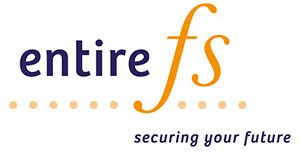For many beginning their equity release journey, questions crop up along the way. To better help you make a decision about whether equity release that is right for you, we have gathered the most frequently asked questions that we come across and provided the answers you are looking for!
What is equity release?
Equity release is the process of accessing money from the value of your home in order to gain greater financial freedom in another area while retaining use of it, unlike gaining access to funds through selling your home.
What is the difference between equity release, lifetime mortgage and home reversion?
Equity release is the general term that covers all products that enable you to unlock the potential of what your home can do. Meanwhile, both lifetime mortgages and home reversion are equity release products that would form your individual equity release plan. A lifetime mortgage is a loan secured against your home while retaining full ownership. Home reversion, on the other hand, is when you sell all or part of your home at less than market value in order to access money and stay on in your home as a tenant, but paying no rent.
Do I qualify for equity release?
There are four main criteria to qualify for equity release. First, you must be over the age of 55. You must be a homeowner with property in the UK. This property must be worth at least £70,000. In addition, you must have little to no mortgage left to pay off. There can be other factors involved, but these are the primary factors.
How much could I release?
The amount of equity that you can release from your home can range from 20-50% of its value. The final amount depends on both the value of your home and your age. Frequently, older homeowners are able to release more equity than younger ones.
Will I have to pay tax on the money I release?
Basically, no, you will not have to pay taxes on the money that you get from an equity release plan. Because the money received in the borrowing process is not classed as income, you will not be required to pay income tax on it and, as it is a borrowing plan, it does not qualify for capital gains tax.
How long will it take to get my money?
From the time of application, receiving money from equity release can take anywhere from four to eight weeks, provided that the required information is clear and there are no other complications.
Do I have to pass any credit or affordability checks?
There are credit checks involved, however, the lender won’t consider your income or expenditure and you won’t need to complete an affordability assessment. Additionally, lenders are more likely to be relaxed about poor credit history depending on the nature of those issues. This is all due to the fact that payments will not be made during your lifetime.
What is an enhanced lifetime mortgage plan?
An enhanced lifetime mortgage plan is similar to a regular lifetime mortgage equity release plan with one significant difference: this plan is affected by your health history. Although this may sound intimidating, if you have a history of ill health, you may be able to release a larger lump sum of equity from your home and no medical examination is needed.
I have a mortgage outstanding on my house. Can I take out equity release?
The short answer is, yes, you can still set up an equity release plan if you have some of your mortgage still outstanding. However, if there is a significant portion of your mortgage still outstanding, you would be unlikely to qualify for equity release. For the more in-depth answer, we recommend speaking to an adviser about your eligibility.
Can I release equity on my buy-to-let, holiday home or a second home?
With certain equity release plans, you will be able to release equity from a property that you own which is not your main residence. However, it is important to consider whether equity release or selling the property makes more sense for your individual situation.
Will equity release affect how much inheritance I can leave for my children?
Equity release will affect how much inheritance you are able to leave your children. You may not be able to leave them the level of assets you were hoping for, but if this is your priority, a good financial adviser should be able to help you create a plan that allows both you and your family with a plan that feels satisfactory.
Do I still own my home with equity release?
With certain equity release products and plans, you will be able to retain ownership of all or most of your home. The financial adviser that you speak with in order to create your equity release plan will be able to work with you and ensure that priorities such as continued ownership are addressed and taken into consideration.
Can I move house with equity release?
There are plans called ‘portable’ equity release plans which enable you to move house while you have a plan active. While not all plans available can be portable, any of them that are guaranteed by the Equity Release Council (ERC) will allow for you to move house.
Does equity release affect my means-tested benefits?
The answer to this is not clear cut, but it certainly can affect benefits entitlement. If you are concerned about your ability to claim once you have an equity release plan in place, please do reach out to a financial adviser who can ensure you are in the best situation financially.
Can someone else live in the house?
There are some scenarios in which another person living in the home is just fine depending on your equity release plan. Anyone on the equity release plan is, of course, entitled to stay in the home. Outside of that comes the question of lodgers and tenants. Lodgers (who share the space with you as landlord and do not have any exclusive spaces) are generally acceptable, whereas tenants (who do not share the space with the landlord and have exclusive rights to the space) are not. The specifics of your situation are best discussed with an adviser to make sure you are eligible.
What happens if I die or move into long term care?
When you are no longer able to live in the home full time (either due to death or moving to long term care), your equity release plan will come to an end. It is at this time that repayments to the lender will need to be made, most often by selling the property.
How will my property be valued?
Your home will be evaluated based on the value of other homes in your area with similar age, size, and condition. The equity release provider that you choose will have your house professionally valued and they will present their findings.
I already have an equity release plan: can I borrow more?
In some instances, you may be able to release additional equity, referred to as a ‘top-up.’ One scenario that might allow for that is if your home has increased in value, allowing for greater equity to be released from it.
Can I switch my equity release plan early?
It is possible with many release products to change your plan if it has become uncompetitive, or unable to meet your future needs. If you feel that this applies to you, do speak to an adviser about the best solution. Perhaps a new lifetime mortgage will supply better rates, but not necessarily. And as with early repayment, there may be unexpected fees for changing your plan.
Can I make partial repayments of capital?
If you are interested in repaying your lifetime mortgage balance back early, that is an option within many plans. However, before making the choice to start partial repayment, be sure that you are aware of any repayment charges that may be applicable. Also, please do note that not all products or plans allow for early repayments.
Can I close my lifetime mortgage?
As with making partial payments, full repayment and closing of your lifetime mortgage is possible within various equity release plans. Importantly, however, early repayment charges may apply. It is best to review the details of your plan before making any payments or ending the plan.
Do I need financial advice?
As with any major financial decisions, we always recommend speaking with an adviser where possible. It is important to make any decisions of this nature with a clear understanding of how it may affect future goals.
Who should I speak to for equity release advice?
Equity release is an advised product, which means it is not possible to set up an equity release plan without an adviser. With that in mind, it is vital that you work with an adviser that you trust.
Entire FS has a team of advisers who can help you design an equity release plan that fulfills your needs and aims to put you in a stable position for the future. If you are wondering what your home can do for you, drop into the office or give us a call on 0161 711 0999.
We do not arrange Home Reversion plans.
A lifetime mortgage is secured against your home. To understand the features and risks, ask for a personalised illustration.
Your home may be repossessed if you do not keep up repayments on your mortgage.
Equity release will reduce the value of your estate and may affect your entitlement to means tested benefits.

